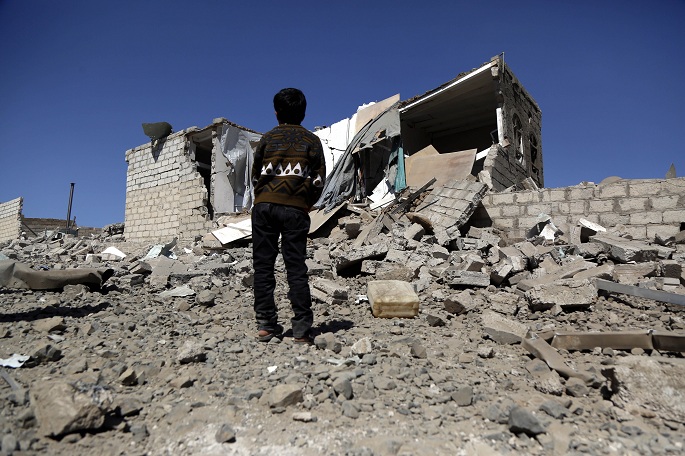520 killed in Yemen's Jawf in 4-year civil war
Published : 03 Apr 2019, 21:59
Updated : 03 Apr 2019, 23:22
At least 520 civilians have been killed in the past four years of war in Yemen's northeastern province of Jawf, according to separate reports released from the Yemeni government and Houthi rebels on Wednesday.
Abdelhadi al-Assar, head of the government-run human rights office in Jawf, told Xinhua by phone that his office has recorded the death of 200 civilians from the rebels' random shelling and landmines in Jawf in the past four years.
The war has damaged 1,722 public and private facilities and forced more than 90,000 families to flee their homes in the province, said al-Assar, citing a government report.
The government troops control much of Jawf's eastern areas near the Saudi border, while Houthi rebels control the largest residential districts of Moton, Khab Washaghaf and Barat in the western part of the province.
Meanwhile, a report from the Houthi rebels said the Saudi-led airstrikes, which supports the Yemeni government troops, have killed 320 civilians, mostly women and children, and injured 470 others in Jawf's western districts over the past four years.
The rebels also blamed the airstrikes for destroying 480 houses, 12 hospitals, 72 agricultural facilities and 23 schools in the districts.
Yemen has been plagued by a civil war since late 2014 when Iranian-allied Houthi rebels revolted against the Saudi-backed government of President Abd-Rabbu Mansour Hadi.
Saudi Arabia intervened in Yemen in March 2015 to support the government of Hadi after Houthi rebels forced him into exile and seized much of the country's north, including the capital Sanaa.
The war has so far killed more than 10,000, displaced 3 million and pushed more than 20 million Yemenis into the brink of famine, according to the UN aid agencies.
Yemeni warring parties reached a peace deal in December last year as a first step toward a comprehensive political solution. However, the deal has hit a deadlock.
UN Special Envoy Martin Griffiths has been shuttling between the rival sides to push the deal toward implementation.

